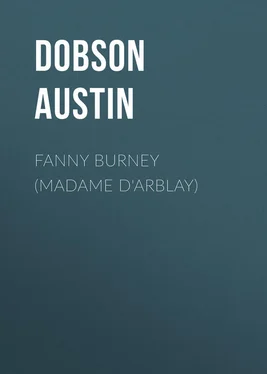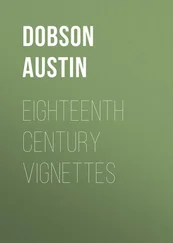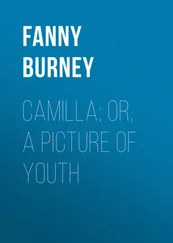Austin Dobson - Fanny Burney (Madame D'Arblay)
Здесь есть возможность читать онлайн «Austin Dobson - Fanny Burney (Madame D'Arblay)» — ознакомительный отрывок электронной книги совершенно бесплатно, а после прочтения отрывка купить полную версию. В некоторых случаях можно слушать аудио, скачать через торрент в формате fb2 и присутствует краткое содержание. Издательство: Иностранный паблик, Жанр: foreign_antique, foreign_prose, на английском языке. Описание произведения, (предисловие) а так же отзывы посетителей доступны на портале библиотеки ЛибКат.
- Название:Fanny Burney (Madame D'Arblay)
- Автор:
- Издательство:Иностранный паблик
- Жанр:
- Год:неизвестен
- ISBN:нет данных
- Рейтинг книги:5 / 5. Голосов: 1
-
Избранное:Добавить в избранное
- Отзывы:
-
Ваша оценка:
- 100
- 1
- 2
- 3
- 4
- 5
Fanny Burney (Madame D'Arblay): краткое содержание, описание и аннотация
Предлагаем к чтению аннотацию, описание, краткое содержание или предисловие (зависит от того, что написал сам автор книги «Fanny Burney (Madame D'Arblay)»). Если вы не нашли необходимую информацию о книге — напишите в комментариях, мы постараемся отыскать её.
Fanny Burney (Madame D'Arblay) — читать онлайн ознакомительный отрывок
Ниже представлен текст книги, разбитый по страницам. Система сохранения места последней прочитанной страницы, позволяет с удобством читать онлайн бесплатно книгу «Fanny Burney (Madame D'Arblay)», без необходимости каждый раз заново искать на чём Вы остановились. Поставьте закладку, и сможете в любой момент перейти на страницу, на которой закончили чтение.
Интервал:
Закладка:
With some account of the next new house, which had, even then, its history, we may fitly open a fresh chapter. In closing this one, however, something must be said as to that Early Diary which Fanny Burney began to keep in May 1768. When, in 1842-6, her Diary and Letters were edited by her sister Charlotte’s daughter, Mrs. Charlotte Francis Barrett, an amiable and learned lady who happily combined a knowledge of Hebrew with a genius for making jelly, it was thought right to withhold the portions preceding the publication of Evelina , as being “of a more private and personal nature than that which attaches to the Journal after its writer became universally known.” But in 1889, this earlier portion also was edited by the late Mrs. Annie Raine Ellis from the original mss. which the first writer, in her own words, had freely “curtailed and erased of what might be mischievous from friendly or Family Considerations.” One of the explanatory memoranda states, and another repeats, that the record was begun at the age of fifteen. Prefixed to the Diary, and “Addressed to a Certain Miss Nobody,” is a whimsical Introduction, which Mrs. Barrett reproduced in facsimile at the beginning of the Diary and Letters of 1842-6. This, of course, may be earlier than the rest, as it is said to be on older paper, and in a slightly different hand. The Diary that follows, as already stated, was considerably revised by the writer in her old age; and, as reprinted in 1889, shows numerous omissions. Of the record for 1769, for example, Mrs. Ellis says, “Much has been cut from the Diary of this year, and it has many erasures. It appears to have been in two or three cahiers , which all lie now within one quarto sheet of paper, so much are they shrunk in size.” There are also large excisions in the accounts for 1771 and 1772; and the manuscript everywhere bears token of wholesale obliterations. Where these are Miss Burney’s own, they are said to be so effectual that scarcely a word can be read. In future chapters, we shall take leave to make sundry extracts from the Burney chronicle; but in this, where only a brief period (1768-73) is in question, we may fairly confine our citations to a few notes, relating mainly to the diarist and her method.
In the first lines of her address to Nobody, Miss Burney defines her purpose. The reason, she says, which induces her to keep a Journal is that, “when the hour arrives in which time is more nimble than memory,” she may have some account of her “thoughts, manners, acquaintance and actions.” Writing in the Cabin at Lynn a little later, she reverts to this idea. “I cannot express the pleasure I have in writing down my thoughts, at the very moment – my opinion of people when I first see them, and how I alter, or how confirm myself in it – and I am much deceived in my fore sight , if I shall not have very great delight in reading this living proof of my manner of passing my time, my sentiments, my thoughts of people I know, and a thousand other things in future – there is something to me very unsatisfactory in passing year after year, without even a memorandum of what you did, etc.” Presently, she has her difficulties. Dr. Burney comes upon a fugitive page of this chronique intime , and though he does not forbid the practice, protests that if he finds it lying about he will post it up in the market place. Then one of her mother’s friends, Miss Dorothy Young (whom the first Mrs. Burney on her death-bed had recommended her husband to marry) had her doubts about this “most dangerous employment.” “Suppose now,” says Miss Young, “your favourite wish were granted, and you were to fall in love [it may be noted that Fanny had already confided this tender aspiration to her pages], and then the object of your passion were to get sight of some part which related to himself?” Here was an appalling suggestion, to which Fanny could only reply that she should have to take a precipitate trip to Rosamond’s Pond in St. James’s Park, then the last resort of the despairing. It is characteristic of this very early entry in the Diary, that the conversation is given exactly as if it had been reported in shorthand. As the record progresses, there are many similar instances of this practice, which greatly irritated distrustful Mr. Croker. “I shall recollect as much of the conversation as I can, and make the parties speak for themselves,” Miss Burney writes of a long interview with the currish misogynist and Tory, Dr. John Shebbeare. And then follows a dialogue to which the names of the speakers are prefixed as they would be in a play.
Some of the most interesting entries at this date relate to her reading, and show that, instead of being, as Lord Macaulay supposed, 11 11 Lord Macaulay relied upon the fact, mentioned in the Dedication to The Wanderer (p. xxii), that Dr. Burney’s large library only contained one novel, Fielding’s Amelia . But, as Mrs. Ellis pertinently remarks, “Novels were brought into the house if they did not abide in it.”
an infrequent student of novels, her activity in this way was fully equal to her opportunities. Richardson’s works she must have known intimately, as she reminds her sister of their early love for him; she reads and cries over and criticises the Vicar of Wakefield ; she reads Rasselas , and thinks the style and sentiments inimitable. The subject however is dreadful. “How terrible is it to be told by a man of his [Johnson’s] genius and knowledge, in so affectingly probable a manner, that true, real, happiness is ever unattainable in this world!” The Sentimental Journey , – which was a special favourite with her step-mother, – she read three times; and, from a reference to “Hobby Horses,” was probably acquainted with Tristram Shandy , or at all events with its famous eighth chapter. Stranger still, she had not only read Prévost’s Doyen de Killérine (with which she is delighted), but that very stimulating work, the Vie de Marianne of Marivaux. Further, she occasionally quotes much inferior productions, e. g. the Henry and Frances of Mrs. Griffiths, the Lady Julia Mandeville of the once-popular Mrs. Brooke, and the Lydia of Shebbeare. These are advanced mainly in answer to Lord Macaulay. But the Diary contains numerous references to studies of a sterner sort. Among the books she speaks of reading, are Plutarch’s Lives , Pope’s Iliad and Odyssey , Hawkesworth’s Telemachus , Hume, Smollett, Smith’s Thucydides , Middleton’s Cicero , Hooke’s Roman , and Stanyan’s Grecian History , – all of which she professes to go through systematically. Here is strong meat enough, one would imagine, for a budding Mme. Roland; – certainly it would be a trying course, in the days when skipping was unknown, for even that model and methodical student, Miss Clarissa Harlowe. Moreover it proves plainly that Fanny’s close attention to braid-stitch, cross-and-change, pinking, pointing, frilling, and all the other niceties of that needlework which her step-mother regarded as so important to young persons – did not leave her without leisure for literature.
To give any detailed summary of the material contained in the first four years of Miss Burney’s Diary would be impracticable here. There are several portraits which (like that of Dr. Shebbeare) show that the writer’s pen is already working willingly and easily in what was to be her most congenial field. There is a long description of the forgotten Spanish traveller, Mr. Richard Twiss, a polyglot eccentric of the first water; there is another of a delightful fop and cousin, Richard Burney, of Worcester, Junr., the son of Dr. Burney’s elder brother; there is a picturesque Journal , addressed to Susan in 1773, of a visit to Teignmouth, – or “Tingmouth,” as the writer calls it, – which Mrs. Ellis fairly characterises as “Fanny’s first book, privately circulated,” and which contains some lively sketches of rural sports and watering-place oddities. Some of these descriptions and portraits go off in letters to “Daddy” Crisp at Chessington, who is delighted, and gives his “dearest Fannikin” some very seasonable advice, which, in after years, she unhappily neglected. “If once you set about framing studied letters, that are to be correct, nicely grammatical, and run in smooth periods, I shall mind them no otherwise than as newspapers of intelligence… There is no fault in an epistolary correspondence like stiffness and study. Dash away whatever comes uppermost; the sudden sallies of imagination, clap’d down on paper, just as they arise, are worth folios… Never think of being correct when you write to me.” Not the least notable of Fanny’s records are the glimpses we get of some of her father’s friends. One is poor mad Kit Smart, always needy and out-at-elbows, with whom Burney had grown acquainted at Arne’s, and who died in 1772 in the King’s Bench Prison. Another, who also died in this period, is Hawkesworth, whose end, according to Fanny, was certainly hastened by the attacks made upon him in connection with his subsidised publication of Cook’s Voyages . Garrick more or less pervades the chronicle, dashing into the house in the most unexpected manner; rushing away with little Charlotte whom he declares to be the image of Comedy in Reynolds’s picture; acting, grimacing, mimicking, posturing, and altogether comporting himself in every respect like the excellent friend and histrion he was. Fanny often sees him play – as Bayes in the Rehearsal ; as Richard the Third; as Lear, and as Abel Drugger in the Alchemist . Of “crook’d back’d Richard” she says, – “It is inconceivable how terribly great he is in this character! I will never see him so disfigured again; he seemed so truly the monster he performed, that I felt myself glow with indignation every time I saw him. The applause he met with, exceeds all belief in the absent. I thought at the end they would have torn the house down: our seats shook under us.” Of Lear, – “He was exquisitely great; every idea I had formed of his talents, although I have ever idolized him, was exceeded.” But she very properly blames Cibber’s feeble alterations of Shakespeare’s work. As to Abel Drugger, perhaps Garrick’s greatest part, she says: – “Never could I have imagined such a metamorphose as I saw; the extreme meanness, the vulgarity, the low wit, the vacancy of countenance, the appearance of unlicked nature in all his motions.” These are more than the opinions of an “unlessoned girl,” for they are confirmed to the full by experienced spectators such as Lichtenberg and Mme. Necker. To Goldsmith, then not far from his end, there is passing reference. “Dr. Goldsmith” – says the diary in May, 1773, – “has just brought on the stage a new comedy, called, ‘She stoops to Conquer .’ We went to it with Mr. and Mrs. Young; it is very laughable and comic; but I know not how it is, almost all diversions are insipid at present to me, except the opera.” There is another mention of Goldsmith a few pages further on. It relates to his projected Dictionary of Arts and Sciences . Among other contributors, Dr. Burney was to undertake the article “Musician.” But the plan never got beyond the prospectus stage. Goldsmith died in the following year, and Dr. Burney’s paper probably found its ultimate place in his own History of Music .
Читать дальшеИнтервал:
Закладка:
Похожие книги на «Fanny Burney (Madame D'Arblay)»
Представляем Вашему вниманию похожие книги на «Fanny Burney (Madame D'Arblay)» списком для выбора. Мы отобрали схожую по названию и смыслу литературу в надежде предоставить читателям больше вариантов отыскать новые, интересные, ещё непрочитанные произведения.
Обсуждение, отзывы о книге «Fanny Burney (Madame D'Arblay)» и просто собственные мнения читателей. Оставьте ваши комментарии, напишите, что Вы думаете о произведении, его смысле или главных героях. Укажите что конкретно понравилось, а что нет, и почему Вы так считаете.












